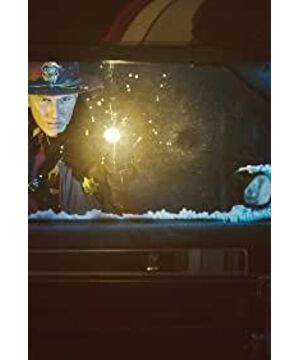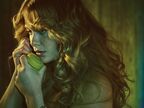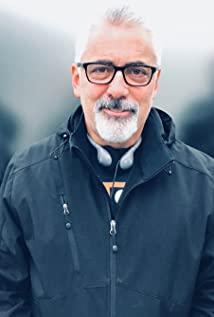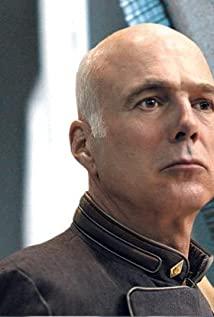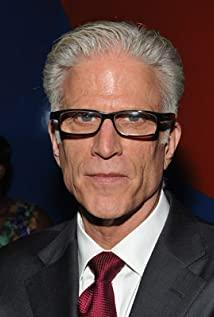The purpose of the first episode is that the main characters are all in, the fast food restaurant murder (Scene 5) happens, the Kansas gangster takeover plan (Scene 16) is revealed, and the whole story starts to work.
The fast food restaurant murder can be called the trigger point, or nucleus, of the entire episode's narrative. It is not difficult to find that after this, all the characters in the film revolved around this matter, and it was just an accident caused by an unimportant character (the third Lie) under extreme emotional tension. It gives meaning to the actions of the individual characters, and as such, the entire world of Frozen 2 appears extremely absurd.
"This is a crisis
of confidence." At the same time, the eldest son Dodd waited in the suburbs with the Indians, the youngest Lie drove, the Kansas gangster was in the car, and the typewriter shop was edited in parallel.
Analysis: The main purpose of this title is to foreshadow the atmosphere and explain the background of the times, a Hollywood habit, giving us a feeling of chaos in the world.
A theme revealed: loss of confidence.
On the outskirts of the first game
, the eldest son, Dodd, took the Indians to meet the third child, Rey, and urged the latter to raise protection money as soon as possible. Rey was dissatisfied with being an errand in the Gerhardt family.
Analysis: If there is a prototype of the character relationship in this scene, the prototype is the relationship between the 4S store manager Shelly and his husband in the movie version of "Frozen". Both Shelly and Liy are tired of being bossed around, want to go it alone, want to make a difference. This involves a certain character truth about human beings. If we go back to the source, we can think of Macbeth who tried to usurp the throne. A very classic theatrical theme.
This scene presents the film's first metaphor, "You're like Jupiter telling Pluto, 'Hey, you're a planet too.'" Lie used this metaphor for Dodd and his relationship. There is no deep meaning, but metaphors can be said to be one of the narrative methods of the film, or one of the ways that the characters think and talk, which is very humorous and ironic. They usually degenerate into playing the qin to the cow, as Dodd responded to the metaphor by saying, "What did you say?" In such a situation, whether it is the qin player or the cow, it becomes ridiculous.
In the second game of
Gerhardt's nest, Gerhardt's father Otto, his wife Floyd, the eldest son Dodd, and the second son Bell, the four settle accounts.
Analysis: The scene reveals four pieces of information, the family business is going downhill; there is a group of people ruining their business (unspecified, it should be a Kansas gangster), Dodd hides this information and does not want to let Dad know; Dodd and Bell are not on good terms, Dodd prevails; Otto suffers a sudden stroke.
Accidents are also one of the ways in which the fictional world of this film works. How should we understand it? A manifestation of the absurdity or instability of the world? see what you think. This scene can be reduced to the sudden death of the old lawyer in the Coen brothers "Serious Men", they (the old lawyer and Otto) are so important in the scene, the characters and the audience are counting on them to show their strength, and they suddenly Dead, or basically dead.
In addition, Otto's prototype character is undoubtedly the old man of the movie version of "Frozen". He has high power and arrogance, and the actor's temperament is also very similar. They explain the stupidity of human beings from a certain angle.
In the third
typewriter shop, the shop owner showed Lie the new typewriter and asked him to find a female judge to unfreeze his assets.
Analysis: Another manifestation of human stupidity is to have illusions about the future. Lie and the shop owner hope to make a fortune from the typewriter and then solve any existential crisis. Its prototype is Xie Li of the movie version of "Frozen", who declared a commercial project to the old man, and wanted to get out of the shadow of the old man. The shape of the typewriter boss should also come from Shelly. The funny thing is that they relied too much on these kinds of projects to save them, just as gamblers dream of getting rich overnight. Or the question is not at all whether the project is reliable and whether the expectations are too high, but that hope itself is a very funny thing.
Look again at how the typewriter shop owner introduced Lie to the new typewriter. He lifted the plastic sheet covering the typewriter, as if imitating an unveiling ceremony. Can the creator's intention be clearer? All hope, all mockery of the business community is condensed in this opening action. There are also borrowings of marketing rhetoric: "Look at the future," "Automatically calibrated IBM II electric typewriter," which still rule the world to this day. Beneath the packaging of this uplifting language lies a lie: they—the planners of business projects, the companies that sell the products—offer us not just a product, but a cure for an existential dilemma .
In the second metaphor of the film, the owner of the typewriter shop said, "You can turn the faucet on the money." Of course, Lie's response was: "What did you say?" , i.e. satirizing the self-consciousness of people who think they see the world clearly.
On the way to Game 4
, Lie followed the female judge while cutting back to Gerhardt's house.
Analysis: Parallel editing creates tension, and Lie doesn't yet know there's something big going on in his house.
Scene 5
Fast Food Restaurant, Murder. Rye shot female judges, shop assistants, black chefs.
Analysis: Once again, accident dominates how the world works. There is no premeditated, very casual, and it is not some character that causes the murder. Or it can be interpreted as human irrationality, or it can be interpreted as human actions do not follow strict cause and effect.
Another parable, more appropriately called a parable, is that the female judge tells Rey about the devil's bet with God, and inflicts many disasters on Job, without changing Job's loyalty to God, to declare that Rey cannot change her decision. It's... just a joke. It's a pretty lame parable for the female judge trying to convince Lie. Lie's reaction, as you might expect, "What did you say?" After the murder of the female judge, we find it all the more ridiculous to look back at her allegory. The fable is a barrier for her to fool the world, and behind it is her stupid arrogance. This arrogance made her make a huge mistake in discerning the situation. It's nothing but stupid.
The murder has to happen, but it doesn't matter how it happens, the choreography in the film, Lie kills the female judge twice, steals money, the female clerk runs away after being injured, Lie chases out the gun but runs out of bullets, etc., nothing more than To complicate the narrative, to make time seem to flow, they don't have much of the inevitability of drama.
Outside the fast food restaurant in Game 6
. An injured Rey sees a flying saucer and is hit by a passing car.
Analysis: Hehe, if you see the flying saucer as one of the reasons why Liy was hit... If we still had doubts before, through this scene, we can be sure that causality and accident are also one of the topics discussed in this film. But there's nothing wrong with taking this scene as proof that the writers are lazy. I think the theme is basically carried over from Serious Men. By extension, it's probably saying that we don't understand the world we live in. At the end of "Serious Men", a hurricane swept through, what will happen? What does it foretell? we do not know. In this film, the appearance of the flying saucer expands the whole world, and at the same time, it refuses us to explain it.
The 7th
police officer Lu family. Lu reads stories to his daughter, his wife packs her clothes, and the police station calls to inform them of the murder.
Analysis: Family! The last acre of reserved land for virtue, the stable pillar of society, the real savior of crisis, the bystander of the chaotic world... All of these have not yet appeared, but you can already feel the creator's preference for them. The policeman, his wife, and his husband (again), are the only positive characters in the film who are not praised or criticized. In terms of its prototype, the policeman and his wife came from the female policewoman in the movie "Frozen", calm, confused, and responsible; and the prototype of this family, that is to say such a harmonious and boring relationship between husband and wife, is copied. As for the husband-in-law, I am thinking of Tommy Lee Jones' role as an old police officer in No Country for Old Men. In addition, this drama also replaces the policewoman's pregnancy in the movie version with his wife's cancer, both of which are "diseases", one pointing to death and the other pointing to birth. They gave the family a hope: a cure from cancer or the arrival of a child—the only hope that should not be ridiculed.
A noteworthy detail, the police greeted his wife "how are you?" when answering the phone. This is a very weak greeting, showing the incompetence of people when they are concerned about a cancer patient. What makes people feel or is more than that, but more is the inability of one person to care meaningfully for another person. Even though they are husband and wife, they are two lonely people in this world. The wife avoids the question by referring to the "love affair" (the fourth metaphor in the film). Because she penetrated the truth, because she knew there was no answer to the question.
game 8
In the fast food restaurant, Lu arrived at the murder scene, talked with the informant, entered the store to investigate, and talked with his husband Hank (an old police officer).
Analysis: The role of the passerby as a reporter is too wonderful. He told Lu that he had covered the dead clerk outside with a dress, which he thought was probably the way to go. His act of covering his clothes meant a lot. First of all, people are already dead, and you put on a piece of clothing, whether it is to help them shelter from the cold or hide their ugliness, it is very meaningless; second, he may be influenced by movies and TV to do so, and it is absurd to the mass media. Sexual reference is also one of the themes of the film; thirdly, this behavior is also a manifestation of what Milan Kundera calls "kitsch", who tries to highlight his role in the world by taking death seriously. important, but he had nothing to do with the death in essence; in the end, he also wanted the police to affirm his actions. What I want to say is that even with such a small character, we can read some metaphysical meaning from him, and read the creators' exploration of the human condition, and isn't this one of the purposes of art? ?
After seeing the body of the black chef, the old police officer said the chef set a single-season touchdown record and still holds the record to this day. From a plot point of view, this information has no effect. Its meaning is also thematic: the nothingness of human existence. The pursuit of champions and records epitomizes the blindness and self-deception of human beings.
The conversation between Lu and Hank, in addition to making us feel the warmth of the family, also mentioned that the wife recently bought a set of recipe cards that she saw on TV, preparing to cook all kinds of world cuisines. The design of this line also involves the deception of people by the mass media or commercial mechanisms. They promote a beautiful picture of life and make the audience indulge in it and have hope for the future, but do not mention the human condition. Sad: beauty does not exist, everything is in vain.
Game 9
Butcher Shop. The butcher bids farewell to the shop owner and the female clerk.
The most prominent element in this scene is the mantra of the three above: "OK, then". The rigidity of life? Conversation void? An allegorical construction of the world? A philosophy of life? Whatever you want to understand. In the film version, people's catchphrase is "Yes (Yah)", which may be the idiom of the people in Fargo, if this is the case, then it has another purpose: realistic (even). "Well then" may have come from John Goodman's Walter in "Murdering the Green Toe."
Scene 10
A cafe. Lawyers and auto mechanics chat, and Lu joins.
The first thing that caught our eye was a person in the store reporting the lottery numbers for the two-color balls - yes, gambling, but we won't read too much into this.
The lawyer must have definitely and definitely picked it up directly from "Murdering Green Toes". The prototype is exactly Walter played by John Goodman. The temperament, body shape and tone of speech of the two are very similar. A set of unquestionable stereotypes, both triumphant and angry because others cannot see what they see. They are a kind of positive clown figure. As far as Walter is concerned, everything he does can lead to the Vietnam War. The lawyers in this film, on the other hand, are too concerned about politics, and it is a conspiracy theory to open their mouths: Ho Chi Minh is an exaggerated enemy of the US government for the development of the military-industrial complex; Lu mentioned Hank's speculation about the murder, the lawyer said "They want you to think so", and used the Kennedy assassination to prove his point, inferring that small waves will eventually turn into big events. His anger was as strongly performative as Walter's. Lu mentioned that his wife was going to undergo chemotherapy, and the lawyer slapped the table angrily, "I just can't stand it, at such a young age...", and then asked Lu to use a soldier in the The example of the Viet Cong who endured five years under torture encouraged his wife.
What is the truth of life that the creator touches with such a character? On the one hand, self-deception, I think, they live in a lie they make up (or borrowed from others) and are indifferent to the real truth; , likes to give meaning to simple events that does not exist.
As for the role of the auto mechanic, it was borrowed from Steve Buscemi's Donny in "Murdering the Green Toes," whose minds were too slow to keep up with what other people were talking about.
Scene 11 The
butcher drives home. In the butcher's house, the wife cooks and does not let the butcher touch the magazines she piles on the chair.
Analysis: How important are magazines? It doesn't matter to us at all, but to the butcher's wife, that magazine is what conspiracy theories are to lawyers, new typewriters are to Lie, records are to black cooks, and that's the foundation of their lives.
In the 12th scene
, policeman Lu arrived home, drank milk, and talked to his wife about his father-in-law. His wife showed him the ashtray that his daughter gave him, and pondered.
Analysis: Lu drinks milk directly from a milk carton, thinking that it tastes better, which is a very life-like detail.
The daughter gave Lu an ashtray, but she didn't know that he didn't smoke. If there was any reference, the meaning was too clear to be considered high-level, but as a fleeting detail of life, it was not bad. What's more important is the act of his daughter giving him a gift. The warmth of the family is created by these details of life.
Contemplating for the camera, Lu may be the only person in the film who enjoys such privileges, which not only emphasizes his status as a bystander, but also gives the audience the opportunity to substitute him. In the movie version, it is the policewoman who has this privilege.
The 13th
butcher's house. The butcher and his wife talk about the source of life, the butcher talks about the butcher shop under the plate, the wife does not want to have sex with the butcher, the butcher finds Rey who was bruised by his wife and brought back, fights with Rey, and Rey dies.
Analysis: The source of life course, an inspirational scam, is the most important thing for the butcher's wife besides collecting magazines. Its sense of absurdity, like mass media and business discourse, lies in providing its dissemination objects with a bright prospect that does not exist, making them think that they can get rid of the predicament of life. In the show's first season, Lester (Martin Freeman) was bewitched by the adage "If they're wrong, are you right?" The extent is inexhaustible.
The Tu couple is a superb woman. She not only deceives herself, but also deceives and takes advantage of others (mainly his husband), or thinks that marrying the butcher is wronging herself (unwilling to have children). At the same time, she is cruel, in order to protect her a bright future, even at the expense of murder. Where did her prototype come from? Shelley in the movie version of "Frozen", Mrs. Macbeth who instigated her husband to seize power, Mrs. Bovary who was extremely dissatisfied with her husband, and the femme fatale in many noir films (unfortunately not very beautiful) can all be said to be her senior. These character traits will gradually spread out later in the episode.
The butcher's desire to dish out the butcher's shop is another variation of the film's "hope" theme. He was not paranoid about this hope, but fortunately it was a more pragmatic hope, and thus easier to gain our sympathy. The sad part about him is that he can't escape the influence his wife exerts on him. As a result, he has also become an obsessive, and it is difficult to see his true situation.
We have no idea why Tu and his wife didn't call the police after they bumped into someone. When the butcher asked about it, his wife couldn't answer either. This cannot be explained by her superb character. If there must be a clear explanation, it should be attributed to her fussing. In other words, she didn't know what to do when faced with such a thing, so she did nothing and waited for the matter to be resolved by itself. Her self-deception is also expressed through an amusing line of dialogue: "I have been walking down the road when I come back." Her expression seems to be telling her husband good news. She directly ignored the seriousness of the incident, as if for her, if there were no witnesses, then the fact that she bumped into a person did not even exist.
Such a different thinking logic from ordinary people brought the couple to an extremely dangerous situation. It is also because of this logic, because of the source of life, that the couple did not die until the eighth episode.
The 14th
police officer Lu family. The snow fell, and policeman Lu mused to the window and slept with his wife.
Analysis: In the movie version of "Frozen", the police couple is lying in bed watching TV together. In the episode, the TV is gone, but we get the same feeling in this scene as the former. What we feel is the peace and despair of the husband and wife, and this may be the only recognized attitude in the world of "Frozen".
"Saturday is over," said the wife. On one level, the busy and chaotic day is over, and it's finally time to take a break. On another level, this sentence is roughly equivalent to "the day has gone by like this again," right, what else could it be? We can only watch time go by without doing anything.
The 15th
parallel clip. The butchers hid the body in the backyard, and the Gerhard family, Freud, Dodd, and Bell, guarded Otto.
Echoing a parallel cut from Scene 4, the Gerhardts have no idea they've lost a son. At the same time we get a hint that a big storm is brewing under the cover of a calm snowy night.
In the 16th
conference room, the Kansas gang uses a projector to report to their leaders on their northern expansion plans.
Analysis: This scene conveys no other information that we don't know, other than the appearance of a few Kansas gangsters to tell us that they will buy Gerhardt's family business. The PPT is well done, but the content of its presentation has been known from the first 15 games. So what made us laugh and be amazed was the presentation of the PowerPoint presentation of this format and the seriousness of the gangster characters. Like the third "Unveiling Ceremony", this scene also imitates and ridicules business behavior, but it goes further. Oddly enough, if this were really a meeting of a Fortune 500 company, we wouldn't find it funny. The funny thing might be that it is associated with conspiracy, with murder. But is it really so? Why don't we think the other way around, isn't a Fortune 500 meeting really not funny?
View more about Waiting for Dutch reviews


